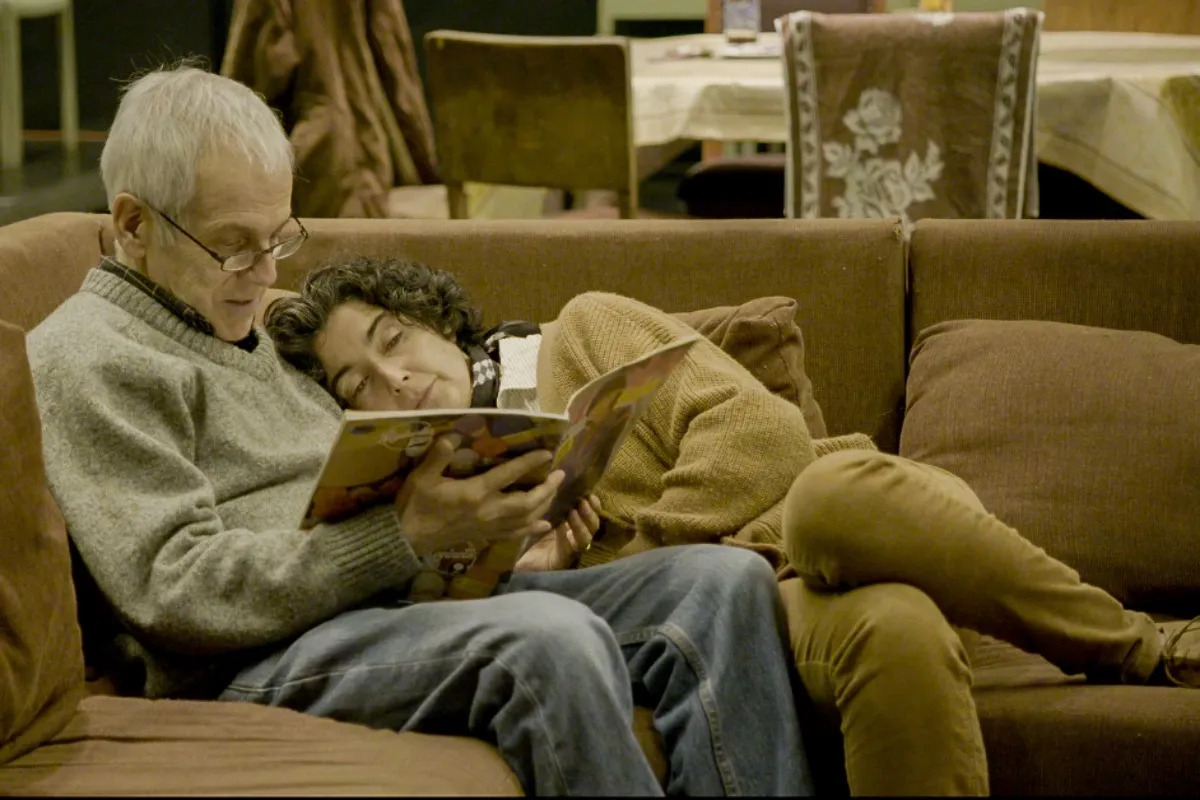- 14 3402-5578
- Rua Hygino Muzy Filho, 737, MARÍLIA - SP
- contato@latinoobservatory.org
 MTV Documentary Films
MTV Documentary Films
The documentary “The Eternal Memory”, directed by Maite Alberdi, depicts the story of Augusto Góngora, a journalist and documentary filmmaker who challenged the Pinochet dictatorship in Chile through his media production and subsequently faced a personal battle with Alzheimer’s. According to a review published by Latino Rebels, Augusto Góngora, editor-in-chief of Teleanálisis (“a clandestine news organization that covered news that the official pro-Pinochet media refused to cover”) during the dictatorship, he led an underground news organization that covered events not covered by the pro-Pinochet media, documenting human rights abuses and violations. In addition, he took over the cultural programming of Televisión Nacional de Chile, producing cultural programs and interviews.
The documentary’s narrative follows Góngora after his 2014 diagnosis of Alzheimer’s, a disease that affected his memory and transformed him from a vibrant journalist into someone whose memories and identity are gradually being eroded. His wife, Paulina Urrutia, an actress and former Minister of Culture, plays a crucial role in the story, trying to keep Góngora’s mind alive. The film depicts the love and struggle shared by the couple as they face together the deterioration of Góngora’s memory.
Director Maite Alberdi uses clips from documentaries and television shows that Góngora worked on, as well as homemade footage of the couple, to contrast Góngora’s active and vibrant past with the Alzheimer’s-affected present. Paulina's struggle to help Góngora remember and her dedication to caring for him reveal the depth of their love, according to the publication.
The film also highlights the relationship between individual memory and collective memory, suggesting that preserving historical memory is crucial to avoiding the repetition of past mistakes. The film draws an analogy between Paulina’s efforts to keep Góngora’s mind alive and the efforts of survivors of dictatorships to remember and hold accountable for violent actions.
Gongora’s illness progresses, and the camera witnesses his mental decline, culminating in his death. The film captures Paulina’s pain as she watches the gradual disappearance of Góngora’s memories and personality, reinforcing the importance of keeping memories of historical figures and significant events alive.
In short, the review reveals that “The Eternal Memory” is an emotional documentary that portrays the life of Augusto Góngora, a journalist who defied the Pinochet dictatorship and faced Alzheimer’s. The film explores love, memory, and the importance of preserving history, offering a unique perspective on the personal struggle and challenges faced by a couple in the face of political and medical adversity.











